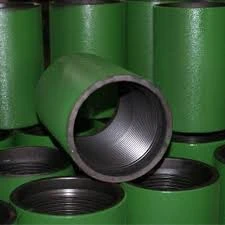- Afrikaans
- Albanian
- Amharic
- Arabic
- Armenian
- Azerbaijani
- Basque
- Belarusian
- Bengali
- Bosnian
- Bulgarian
- Catalan
- Cebuano
- Corsican
- Croatian
- Czech
- Danish
- Dutch
- English
- Esperanto
- Estonian
- Finnish
- French
- Frisian
- Galician
- Georgian
- German
- Greek
- Gujarati
- Haitian Creole
- hausa
- hawaiian
- Hebrew
- Hindi
- Miao
- Hungarian
- Icelandic
- igbo
- Indonesian
- irish
- Italian
- Japanese
- Javanese
- Kannada
- kazakh
- Khmer
- Rwandese
- Korean
- Kurdish
- Kyrgyz
- Lao
- Latin
- Latvian
- Lithuanian
- Luxembourgish
- Macedonian
- Malgashi
- Malay
- Malayalam
- Maltese
- Maori
- Marathi
- Mongolian
- Myanmar
- Nepali
- Norwegian
- Norwegian
- Occitan
- Pashto
- Persian
- Polish
- Portuguese
- Punjabi
- Romanian
- Russian
- Samoan
- Scottish Gaelic
- Serbian
- Sesotho
- Shona
- Sindhi
- Sinhala
- Slovak
- Slovenian
- Somali
- Spanish
- Sundanese
- Swahili
- Swedish
- Tagalog
- Tajik
- Tamil
- Tatar
- Telugu
- Thai
- Turkish
- Turkmen
- Ukrainian
- Urdu
- Uighur
- Uzbek
- Vietnamese
- Welsh
- Bantu
- Yiddish
- Yoruba
- Zulu
what is a bull plug
Understanding Bull Plugs What They Are and Their Uses
A bull plug is a term primarily used in the context of various industries, including electronics, plumbing, and even agriculture. Understanding bull plugs is essential as they play a crucial role in ensuring systems operate efficiently and safely. In this article, we will delve into what a bull plug is, its different types, and its applications across various fields.
What is a Bull Plug?
A bull plug, in its simplest form, is a component designed to seal or close off a port, inlet, or outlet of a system. The term can differ in meaning depending on the industry context, but the primary function remains consistent to prevent leakage or contamination and to maintain pressure within a system.
In the plumbing industry, for instance, a bull plug is often used to block off a pipe or fitting. Typically constructed from durable materials such as PVC, metal, or rubber, these plugs ensure that no fluid escapes from the system, thereby maintaining its integrity. In electronics, a bull plug can refer to a connector that seals off the ends of a circuit or device, safeguarding it against dust, moisture, and other environmental factors that could cause damage.
Types of Bull Plugs
Bull plugs come in various types and sizes, suited to different applications. Below are a few common types
1. Pipe Bull Plugs Used primarily in plumbing, these plugs fit into the end of a pipe to stop the flow of water or other fluids. They can be temporary or permanent, depending on the needs of the system.
2. Electrical Bull Plugs In the electronics field, these plugs serve to cover or protect unused connectors in a circuit. They prevent dust and moisture from entering, which can lead to short circuits or other malfunctions.
3. Hydraulic Bull Plugs Common in hydraulic systems, these plugs help to seal off hydraulic lines. They must withstand high pressure and are designed to fit specific measurements for optimal performance.
what is a bull plug

4. Agricultural Bull Plugs In agriculture, bull plugs might be utilized to seal off irrigation pipes or systems temporarily during maintenance or repairs.
Applications of Bull Plugs
The applications of bull plugs span across various sectors. Here are a few examples
- Plumbing Bull plugs are crucial in plumbing systems, where they are used to create airtight seals in drainage systems, water supply lines, and other plumbing fixtures. This ensures that there are no leaks and that the integrity of the plumbing system is maintained.
- Electronics In electronic devices, bull plugs prevent contamination and damage to open connectors. They are significant during storage and transport, ensuring that devices are protected from environmental hazards.
- Industrial Applications In manufacturing and industrial settings, bull plugs can be vital for maintaining pressure in hydraulic and pneumatic systems. Using the correct bull plug can prevent costly leaks and ensure the safety of workers.
- Agriculture In irrigation systems, bull plugs can help manage water flow during repairs, ensuring that systems can be maintained without complete shutdowns.
Conclusion
In summary, a bull plug is a versatile component with critical functions across various fields. Whether in plumbing, electronics, agriculture, or industrial applications, these plugs play a vital role in maintaining system efficiency, safety, and integrity. Understanding the significance and types of bull plugs can help professionals make informed decisions about their use, ensuring optimal performance in their respective systems. Whether you're a plumber, an engineer, or involved in agriculture, recognizing the importance of bull plugs can lead to more effective management of your systems and components.
-
Tubing coupling plays a significant role in the chemical industryNewsApr.03,2025
-
The Importance of Tubing Crossover in Various Industrial FieldsNewsApr.03,2025
-
The characteristics and important role of Tubing Pup JointNewsApr.03,2025
-
Characteristics and functions of Pup jointNewsApr.03,2025
-
Characteristics and Functions of Pup Joint PipeNewsApr.03,2025
-
Application of Coupling Casing in Various ScenariosNewsApr.03,2025







